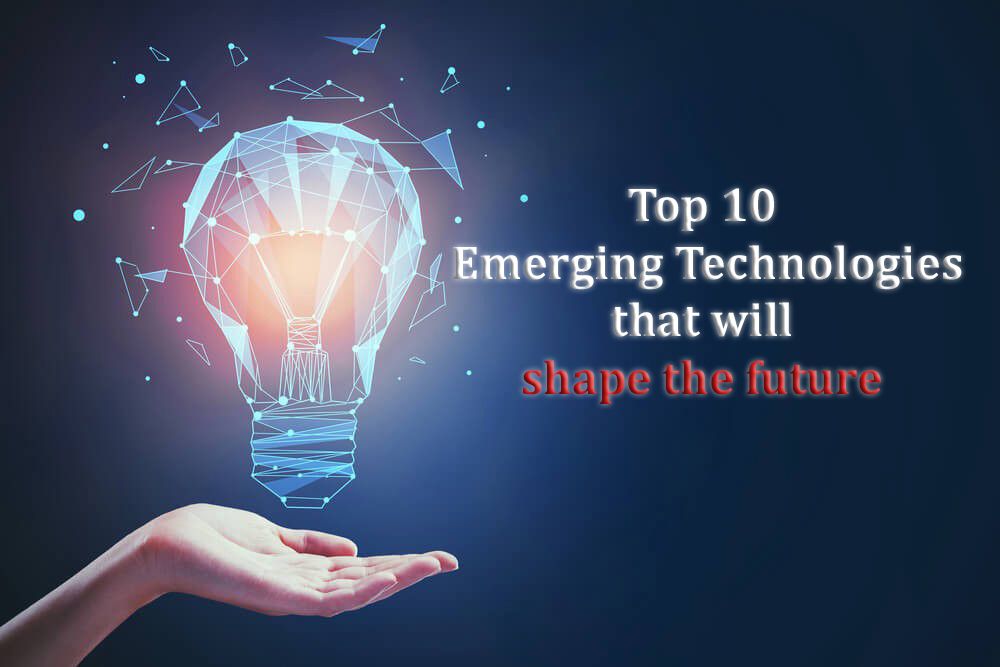

As we stand on the cusp of a technological revolution, it’s crucial to understand the innovations that will shape our future. Let’s explore this topic in more detail with Papa’s Freezeria below, where we’ll delve into the top 10 emerging technologies that promise to transform our world. From artificial intelligence to quantum computing, these advancements are set to revolutionize industries, enhance our daily lives, and tackle some of humanity’s greatest challenges. Join us on this journey through the cutting-edge developments that will define the next era of human progress.
Artificial Intelligence (AI) and Machine Learning (ML) are at the forefront of technological innovation, promising to revolutionize industries and transform our daily lives. These technologies are no longer confined to science fiction; they are becoming increasingly integrated into our reality, offering solutions to complex problems and enhancing human capabilities.
AI systems are designed to mimic human intelligence, capable of learning, reasoning, and self-correction. Machine Learning, a subset of AI, focuses on the development of algorithms that allow computers to learn from and make predictions or decisions based on data. The applications of AI and ML are vast and growing, spanning sectors such as healthcare, finance, transportation, and education.
In healthcare, AI is being used to analyze medical images, predict disease outbreaks, and personalize treatment plans. IBM’s Watson, for instance, has shown promising results in cancer diagnosis and treatment recommendations. In finance, ML algorithms are revolutionizing fraud detection, risk assessment, and algorithmic trading. Companies like PayPal utilize ML to detect suspicious transactions in real-time, significantly reducing financial fraud.
The automotive industry is leveraging AI for the development of autonomous vehicles. Companies like Tesla, Waymo, and Uber are investing heavily in this technology, aiming to create safer and more efficient transportation systems. In education, AI-powered adaptive learning platforms are personalizing the learning experience, catering to individual student needs and learning styles.
As AI and ML continue to evolve, we can expect to see more sophisticated applications emerge. Natural Language Processing (NLP) is improving human-computer interactions, making virtual assistants like Siri and Alexa more intuitive and useful. Computer vision is enhancing security systems and enabling augmented reality experiences. The potential of AI and ML to solve complex problems, from climate change to disease eradication, is immense and largely untapped.
However, the rise of AI also brings ethical considerations and challenges. Issues such as data privacy, algorithmic bias, and the potential displacement of human workers need to be addressed. As we move forward, it’s crucial to develop AI systems that are transparent, accountable, and aligned with human values.
Read more: How to Start a Career in Tech with No Degree
The Internet of Things (IoT) represents a paradigm shift in how we interact with the world around us. It refers to the network of physical objects embedded with sensors, software, and other technologies, enabling them to connect and exchange data with other devices and systems over the internet. This interconnectedness is paving the way for smart homes, cities, and industries, fundamentally changing how we live and work.
At the heart of IoT are smart devices that can collect and transmit data. These range from simple sensors to complex systems like autonomous vehicles. In our homes, smart thermostats learn our preferences and adjust temperatures accordingly, while smart refrigerators can monitor food levels and even place orders when supplies run low. Voice-activated assistants like Amazon’s Alexa or Google Home act as central hubs, controlling various smart devices and providing information on demand.
The impact of IoT extends far beyond our homes. In agriculture, IoT sensors are being used to monitor soil moisture, crop growth, and weather conditions, enabling farmers to make data-driven decisions that optimize yield and reduce resource waste. In healthcare, wearable devices track vital signs and activity levels, providing valuable data to healthcare providers and enabling early intervention in potential health issues.
Smart cities are perhaps one of the most ambitious applications of IoT technology. By integrating IoT devices throughout urban infrastructure, cities can improve energy efficiency, reduce traffic congestion, enhance public safety, and provide better services to citizens. For example, smart streetlights can adjust their brightness based on the presence of people or vehicles, saving energy when not needed. IoT-enabled waste management systems can optimize collection routes based on the fill levels of bins, reducing costs and improving sanitation.
In industry, the Industrial Internet of Things (IIoT) is transforming manufacturing processes. Sensors on machinery can predict maintenance needs before breakdowns occur, minimizing downtime and improving productivity. Supply chain management is being revolutionized by IoT, with real-time tracking of goods from production to delivery, enhancing efficiency and reducing losses.
As IoT continues to evolve, we can expect to see more sophisticated applications emerge. The integration of AI and ML with IoT devices will lead to even smarter systems capable of making complex decisions autonomously. However, this increased connectivity also raises concerns about data privacy and security. Ensuring the protection of personal information and the security of IoT networks will be crucial as this technology becomes more pervasive in our lives.
The rollout of 5G networks is set to supercharge the IoT revolution. With its high speed, low latency, and ability to connect a massive number of devices simultaneously, 5G will enable more sophisticated and responsive IoT applications. This will be particularly important for applications requiring real-time data processing, such as autonomous vehicles and remote surgery.
Blockchain technology, originally developed as the underlying system for cryptocurrencies like Bitcoin, has emerged as a powerful tool with applications far beyond digital currencies. At its core, blockchain is a decentralized, distributed ledger technology that records transactions across a network of computers. This structure ensures transparency, security, and immutability of data, making it an attractive solution for various industries.
The financial sector was the first to recognize the potential of blockchain. Beyond cryptocurrencies, blockchain is being used to streamline cross-border payments, reduce fraud in financial transactions, and create smart contracts that automatically execute when certain conditions are met. Major banks and financial institutions are investing heavily in blockchain research and development, recognizing its potential to revolutionize the industry.
However, the applications of blockchain extend far beyond finance. In supply chain management, blockchain can provide end-to-end visibility of products, from manufacturing to delivery. This transparency can help combat counterfeit goods, ensure ethical sourcing of materials, and improve overall efficiency. Companies like Walmart and Maersk are already implementing blockchain solutions in their supply chains.
The healthcare industry is exploring blockchain for secure sharing of patient data among healthcare providers while maintaining patient privacy. This could lead to more coordinated care, reduce medical errors, and streamline administrative processes. Blockchain could also be used to verify the authenticity of pharmaceutical products, combating the proliferation of counterfeit drugs.
In the realm of digital identity, blockchain offers a solution to the challenges of identity verification and data protection. Self-sovereign identity systems built on blockchain allow individuals to have control over their personal data, deciding what information to share and with whom. This has significant implications for privacy and could revolutionize how we interact with online services.
The energy sector is another area where blockchain is making inroads. Peer-to-peer energy trading platforms built on blockchain allow individuals with solar panels to sell excess energy directly to their neighbors, creating more efficient and decentralized energy grids. This could accelerate the adoption of renewable energy and reduce dependence on centralized power systems.
As blockchain technology matures, we can expect to see more innovative applications emerge. The concept of Decentralized Autonomous Organizations (DAOs), where decision-making and management are encoded in smart contracts on the blockchain, could revolutionize organizational structures. Non-Fungible Tokens (NFTs), unique digital assets verified by blockchain, are already disrupting the art world and could extend to other areas of digital ownership and rights management.
Read more: Why Everyone Should Learn the Basics of Cybersecurity
Despite its potential, blockchain technology faces several challenges. Scalability remains a significant issue, with many blockchain networks struggling to handle high transaction volumes. Energy consumption, particularly in proof-of-work systems like Bitcoin, is another concern. However, new consensus mechanisms and more efficient blockchain designs are being developed to address these issues.
Regulatory uncertainty is another hurdle, particularly in the realm of cryptocurrencies and decentralized finance. As governments and regulatory bodies grapple with these new technologies, clearer regulatory frameworks will need to be established to foster innovation while protecting consumers.